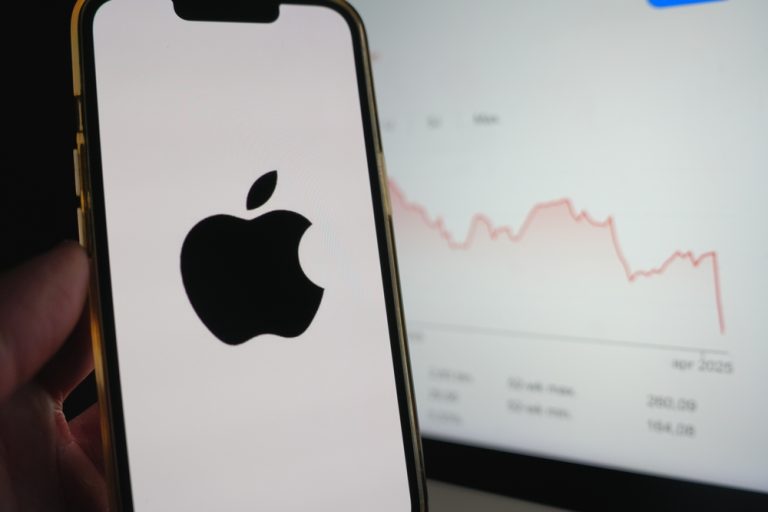National Economic Council Director Kevin Hassett clarified on Tuesday that the Trump administration does not intend to “harm Apple” with tariffs, despite President Trump’s recent threat to impose a 25% tariff on iPhones manufactured outside the U.S. Hassett made these remarks in response to concerns that the imposition of tariffs on Apple products would hurt consumers. The administration’s comments come after Trump’s social media post demanding Apple manufacture iPhones in the U.S. or face steep tariffs.
Trump’s Tariff Threat and Apple’s Manufacturing Strategy
In a social media post, President Trump stated that Apple would have to pay a tariff of at least 25% on iPhones made outside the U.S., including products manufactured in China, India, and Vietnam. Trump emphasized that he had already informed Apple CEO Tim Cook of his expectation that iPhones sold in the U.S. should be produced domestically, warning that failure to comply would result in the hefty tariff. “If that is not the case, a Tariff of at least 25% must be paid by Apple to the U.S.,” Trump wrote. This announcement raised concerns about the potential costs of U.S.-made iPhones, which could reach as high as $3,500 by some estimates.
Hassett’s Comments on Tariff Impact
Kevin Hassett defended the administration’s approach, saying the goal is not to harm Apple but to encourage domestic production. He explained that if Apple continues to manufacture iPhones overseas, the company would bear the burden of the tariffs, rather than consumers. “If you think that Apple has a factory some place that’s got a set number of iPhones that it produces and it needs to sell them no matter what, then Apple will bear those tariffs, not consumers, because it’s an elastic supply,” Hassett said during an interview on CNBC’s “Squawk Box.”
Administration’s Push to Shift Tariff Costs
Hassett’s comments continue the administration’s broader strategy to shift the cost burden of tariffs from consumers to companies. Earlier this month, Trump told retail giant Walmart to “EAT THE TARIFFS” after the company warned it would have to pass on the added costs to consumers. The Trump administration has made clear its intent to negotiate trade terms in favor of U.S. manufacturers, even if it means pressuring companies like Apple to bear the cost of tariffs instead of raising consumer prices.
Market Reaction and Apple’s Position
Despite the ongoing tariff threat, Apple’s shares rose by more than 1% on Tuesday, signaling market confidence in the company’s ability to navigate the evolving trade landscape. Apple has yet to respond to CNBC’s request for comment regarding the latest tariff developments, but the company is likely to continue evaluating its production strategies as it faces pressure from the Trump administration’s trade policies.


